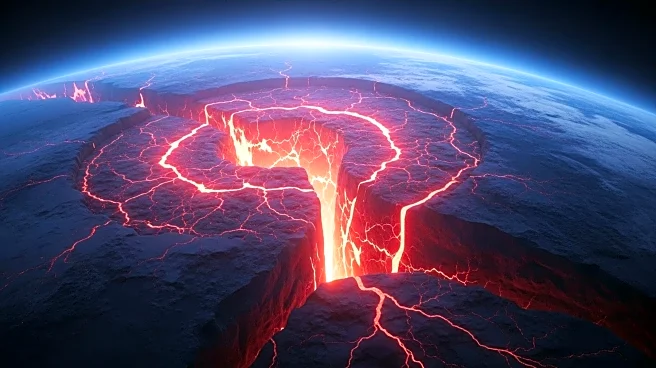What's Happening?
Researchers from the University of Southampton have identified a 'geological heartbeat' beneath the Afar Depression in East Africa, where mantle pulses are contributing to the formation of a new ocean. The study involved collecting lava samples from over 130 volcanoes, revealing an asymmetrical mantle upwelling that is eroding the lithosphere and causing volcanic episodes. This process is expected to eventually lead to the Horn of Africa splitting from the mainland, similar to the historical separation of the Atlantic from Europe and North America.
Why It's Important?
The findings have significant implications for understanding continental breakup and volcanic activity. The mantle pulses are linked to plate dynamics, influencing surface volcanism and earthquake activity. This research reshapes the understanding of how continents fracture and could provide insights into past climatic upheavals and mass extinctions caused by large igneous provinces. The study highlights the dynamic connection between deep Earth processes and surface geological events, offering a new perspective on Earth's geological evolution.
What's Next?
Future research will focus on mapping mantle flow beneath thin plates and understanding how it directs volcanic vents. Scientists aim to explore the rate and behavior of mantle flow beneath tectonic plates, which could further elucidate the processes of continental breakup and volcanic activity. This ongoing research is crucial for predicting geological changes and mitigating potential risks associated with volcanic eruptions and earthquakes.
Beyond the Headlines
The study underscores the importance of interdisciplinary collaboration in geoscience research, combining various techniques to unravel complex geological processes. Understanding mantle upwellings and their interaction with tectonic plates could lead to advancements in predicting and managing geological hazards, contributing to global efforts in disaster preparedness and environmental conservation.











